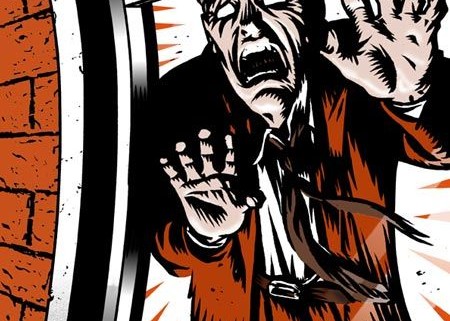The Most Common Beliefs about Panic Attacks we Need to Stop Believing
Imagine standing on the edge of a cliff. There are no barriers to prevent you from falling over, and it’s a bit windy. Look down. Feeling anxious? Good, that’s a perfectly healthy and helpful response to the situation you find yourself in.
Hold onto the feeling you had looking down the cliff face – and now imagine dealing with that feeling whilst doing the supermarket shop. Probably not so healthy or helpful.
These intense episodes are an alarmingly common for people who struggle from panic attacks and panic disorder, says Dr Ben Piper – and it’s an often misunderstood mental health issue. In everyday language we often refer to feelings of being nervous as ‘panic attacks.’ In this post, Ben flags up the most common misconceptions he sees people believe about panic, even long term sufferers.
You loose all control and go ‘crazy’ during a panic attack
Even though panic attacks can be very disturbing, they will not cause you to completely lose touch with reality. You may experience feelings of depersonalization and derealization, in which you briefly feel disconnected from yourself and the world around you. As uncomfortable as these symptoms can be, they are not signs of psychosis. Some other mental health disorders, such as depression and PTSD, do frequently co-occur with panic disorder. However, panic disorder is not commonly associated with schizophrenia.
Panic attacks are in indication you are likely to develop a more serious mental illness.
This leads on quite nicely from the first myth. Many people believe that being diagnosed with panic disorder or having a panic attack means they’re going to develop another serious mental illness, such as bipolar disorder or schizophrenia. But panic disorder can really be something in its own right. If you’re still worried, bring up your concerns with a mental health professional.
Deep breathes will calm you down during a panic attack
Panicking people are often told to calm down and “take a deep breath.” But for someone hyperventilating during a panic attack, deep breathing is a bad idea. The increased amounts of carbon dioxide caused by deep breathing leads to feelings of dizziness and numbness. The new research suggests shallower inhalation and a deeper/ longer exhalation are more effective.
The Beginners Self Care guide for Anxiety and Panic
Learn how to manage anxiety and panic attacks
Having panic attacks is something you will have to deal with for the rest of your life
It’s a common misconception that [being diagnosed with panic disorder] means that you will have to be on medication for the rest of your life.I think this contributes to the avoidance factors and stigma towards counselling and mental health, which can make sufferers prolong getting help. However, the sooner you do so, the sooner you can control your panic.
People respond well to medication and generally and the research supports its use. Here at iRise Psychology we use Cognitive Behavioural Therapy without medications, or a combination of both if the client has been prescribed medication from a psychiatrist. There’s also a myth that there is no real help out there for panic disorder, which isn’t true. There are some high performing evidence based treatments for panic.




